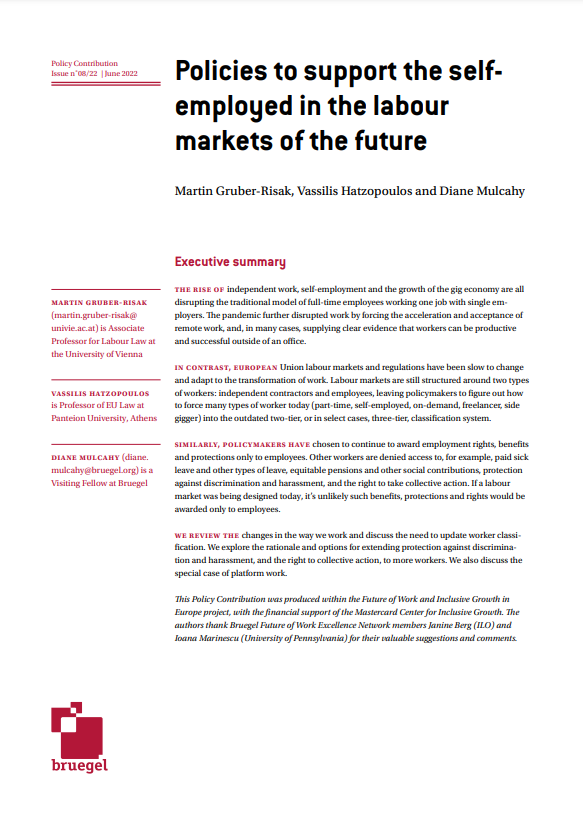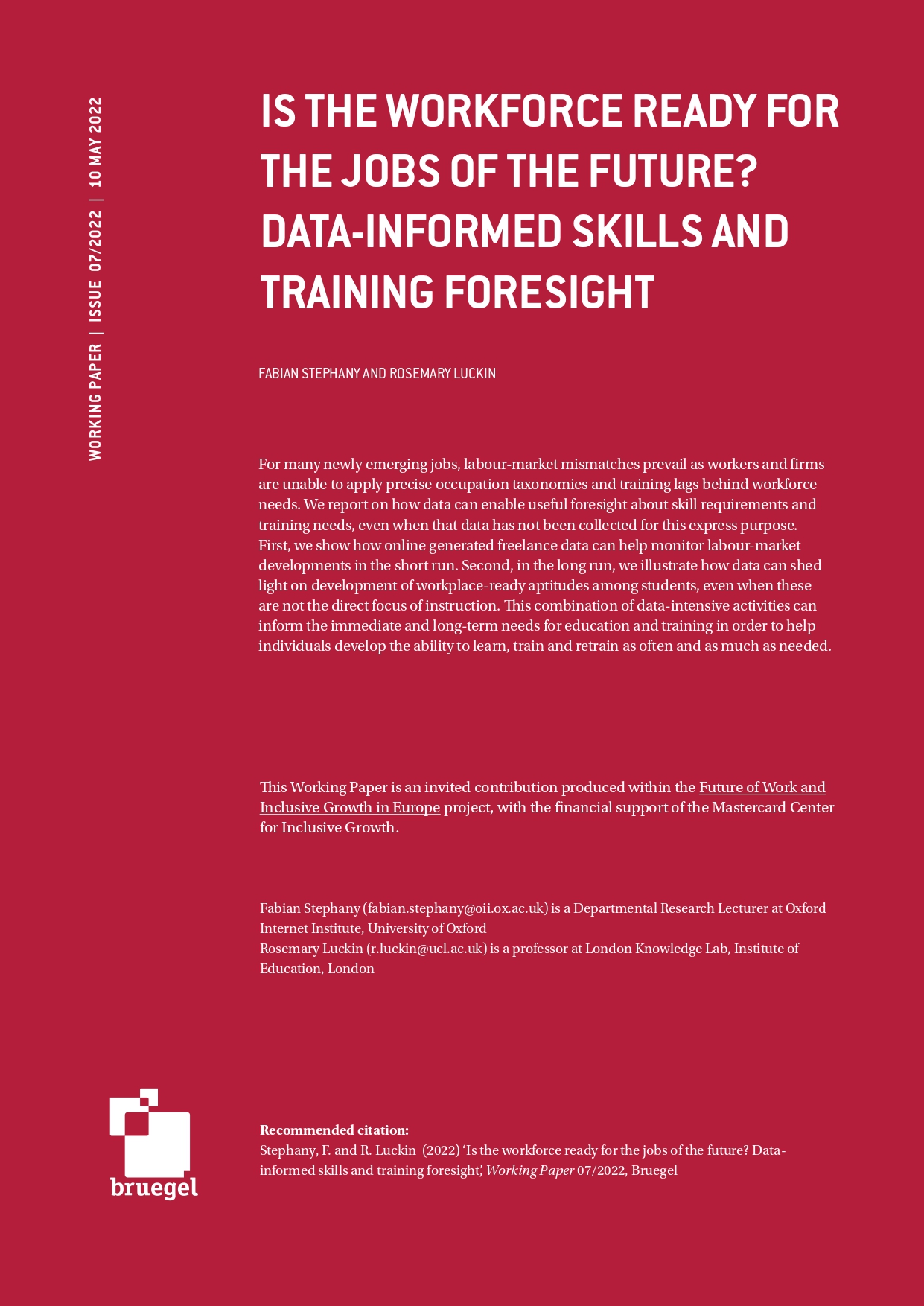Past Event
Future of Work and Inclusive Growth Annual Conference
Annual Conference of the Future of Work and Inclusive Growth project
VIDEO RECORDINGs
The future of work is digital, but is it for all?
On 7 June we held the Annual Conference of the Future of Work and Inclusive Growth project. Half-way through this three-year project, we invited you to join us in discussing how inclusive the digital future of work will be, as we focused on job quality, digital skills and productivity.
Moving past worries of how many jobs will be left in an AI-automated future, we discussed what kind of jobs this future holds? Low-skilled workers experience much more low-quality work and as new technologies are threatening to exacerbate this inequity, we discussed how to mitigate this risk and ensure better jobs for all workers across the skill spectrum. Closing the digital skills gap is crucial to achieving this inclusive growth and we examined how online data can enable useful foresight about skills requirements and training implications. Finally, digital skills will also be essential in ensuring that expected productivity gains of AI can materialize. We discussed the challenges business face as they adapt their business models and organizational models this new technology.
The conference was held over two days. The first day, 7 June, featured a series of public sessions, which were available to attend on-site or watch online. These public sessions were followed by a closed-door dinner for the speakers and members of the Future of Work and Inclusive Growth Excellence Network. On 8 June the members of the Excellence Network took part in a series of closed door workshops to exchange on the ongoing research.
The session Productivity effects of AI: Are there transatlantic differences was organised in cooperation with EU/US Transatlantic expert group on the future of work, which is supported by the European Union.
The ‘Future of Work and Inclusive Growth project’ is supported by and developed in collaboration with the Mastercard Center for Inclusive Growth.
Schedule
10:00-10:30 CET
Coffee & Check-In
10:30-11:30 CET
Ensuring job quality in the future of work
Chair: Laura Nurski, Research fellow
Francis Green, Professor of Work and Education Economics, University College London
Ivailo Kalfin, Executive Director, Eurofound
Anna Kwiatkiewicz-Mory, Senior Adviser, BusinessEurope
Poon King Wang, Director, Lee Kuan Yew Centre for Innovative Cities at the Singapore University of Technology and Design
11:30-12:00 CET
Coffee break
12:00-13:00 CET
Keynote conversation
Chair: Guntram B. Wolff, Former Director
Carl Frey, Director, Future of Work, Oxford Martin School, University of Oxford
Monika Queisser, Head of social policy division, OECD
13:00-14:00 CET
Lunch break
14:00-15:00 CET
How data science and online data can help closing the digital skill gap
Chair: Fabian Stephany, Non-resident Fellow
Vladimir Kvetan, Expert in skills trends and intelligence, CEDEFOP
Anoush Margaryan, Professor of Learning Sciences, Department of Digitalization and Endowed Chair of Blended Learning, Copenhagen Business School
Julia Nania, Research Lead, Emsi Burning Glass
Niels van Weeren, Head of data science, Randstad
15:00-15:30 CET
Coffee break
15:30-16:30 CET
Productivity effects of AI: Are there transatlantic differences*
Chair: J. Scott Marcus, Senior Fellow
Arturo Franco, Senior Vice President, Thought Leadership, Mastercard Center for Inclusive Growth
Andrea Glorioso, Policy officer, European Commission
Francis Hintermann, Executive Director, Accenture Research, Accenture
16:30-17:15 CET
Closing speech
Chair: Guntram B. Wolff, Former Director
Erik Brynjolfsson, Jerry Yang and Akiko Yamazaki Professor and Senior Fellow, Stanford Institute for Human-Centered AI (HAI)
Speakers

Erik Brynjolfsson
Jerry Yang and Akiko Yamazaki Professor and Senior Fellow, Stanford Institute for Human-Centered AI (HAI)
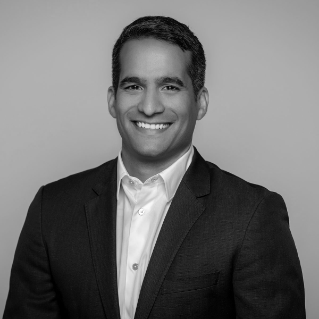
Arturo Franco
Senior Vice President, Thought Leadership, Mastercard Center for Inclusive Growth
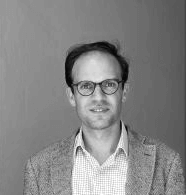
Carl Frey
Director, Future of Work, Oxford Martin School, University of Oxford

Andrea Glorioso
Policy officer, European Commission
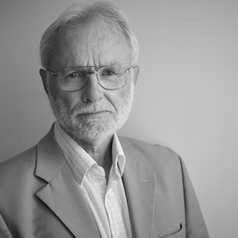
Francis Green
Professor of Work and Education Economics, University College London

Francis Hintermann
Executive Director, Accenture Research, Accenture

Ivailo Kalfin
Executive Director, Eurofound
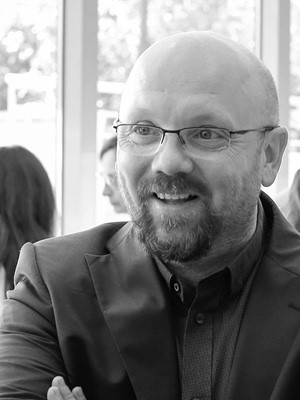
Vladimir Kvetan
Expert in skills trends and intelligence, CEDEFOP

J. Scott Marcus
Senior Fellow
Anna Kwiatkiewicz-Mory
Senior Adviser, BusinessEurope
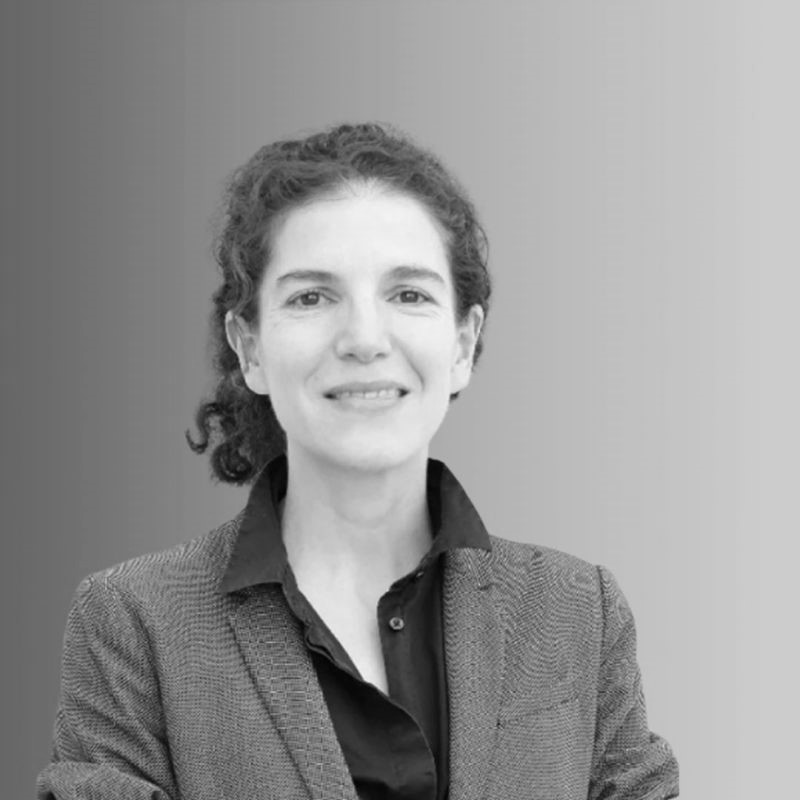
Anoush Margaryan
Professor of Learning Sciences, Department of Digitalization and Endowed Chair of Blended Learning, Copenhagen Business School
Julia Nania
Research Lead, Emsi Burning Glass

Laura Nurski
Research fellow

Poon King Wang
Director, Lee Kuan Yew Centre for Innovative Cities at the Singapore University of Technology and Design

Monika Queisser
Head of social policy division, OECD

Fabian Stephany
Non-resident Fellow

Niels van Weeren
Head of data science, Randstad

Guntram B. Wolff
Former Director
Location & Contact
Katja Knezevic
[email protected]


